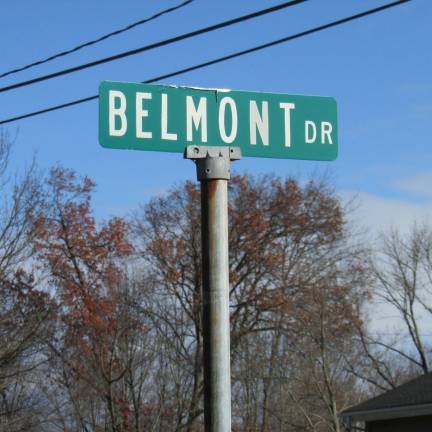Law settles old private road issue with decreased service

BY ANN GENADER
WEST MILFORD — People with property on “private” or “non public” roads in the Township of West Milford will no longer receive the level of road work they have come to expect from the township in recent years. According to state law (NJSA 40:67-23.3), the township is only required to provide basic services to people on private roads — including removal of snow/ice and the collection of garbage — and that is all the service they will receive from now on.
“Upon careful analysis it has been determined that the annual maintenance costs associated with these dirt/gravel roads are excessive and result in an unbalanced and unfair distribution of township resources including time, labor and materials,” said Township Administrator Antoinette Battaglia in a Nov. 14 notification letter to the “private” road property owners.
She wrote that effective immediately, the Department of Public Works (DPW) has been directed to restore the maintenance of dirt/gravel roads to the township threshold of “passable for emergency vehicles.”
“While this level of service still exceeds the statutory required minimum, additional township resources can no longer be dedicated to these roads,” advised the administrator. “Beyond what is required by law, the township has historically maintained these roads to a higher degree.”
Battaglia said property owners located on private roads receive an adjustment on the value of their land with an automatic reduction in the portion of their tax bill reflecting and accounting for the statutory reduced road level service.
Despite the tax reduction, it came to the attention of township officials that these dirt/gravel roads have frequently been maintained to a significantly larger degree, exceeding the “passable” threshold, she said.
The startHistorically the local private road problems of today had their origin 70 or 80 years ago when local officials were unaware that laws were needed to keep developers from building lake communities — and then leaving town with no provisions for future road maintenance and public water supply upkeep.
Initially, the summer use only second home colonies worked out fine for the township. The zoning ordinance in place classified homes into one of two categories — “All year-round” or “seasonal.” Dwellings classified as seasonal, according to the original zoning law, could only be occupied between April 1 and Oct. 31. People could not stay in them for periods exceeding 14 successive days between Nov. 1 and March 31.
Converting to year-round homes By the late 1950s and early 1960s, vacation homeowners were looking to sell their homes in the cities and suburbs and convert their second homes for full-time residency. The movement to convert the seasonal homes for year-round residency grew fast. Pressured by the seasonal homeowners, the township removed the seasonal residency requirement.
By this time, developers of the lake communities were long gone – with no provisions to take care of the private roads and water systems that they left behind.
The rural township government — with all offices and services operating out of the former church building that is now the West Milford Museum — struggled to meet the needs of hundreds of more full-time residents.
With no procedure or money left by the developers for care of private roads in the lake communities, there was a major problem. The township plowed snow and did maintenance as best they could with limited resources.
The residents of the reconverted seasonal homes on private roads felt that they had a right to have road care and maintenance like the residents on public roads were receiving.
Majority ruleEventually a road assessment program was devised by the township. If the majority of the people on a private road agreed they could have a road reconstruction program to bring the road quality up to township standards and acceptance as a private road. They would be able to pay the cost over a 10-year period. During some years the township contributed some money to the project.
Many roads — such as those at Pinecliff Lake and Mount Glen Lake — went through the procedure and are now township roads with full services.
There are still many private roads throughout the township. The administration and engineering departments, with a goal of having assessment programs to bring all roads into public compliance and township ownership, held meetings with Lake Lookover residents, Echo Lake community and Oak Ridge residents this year with prospects of assessment programs. The necessary number of residents needed for the assessed road upgrades residents did not show interest.